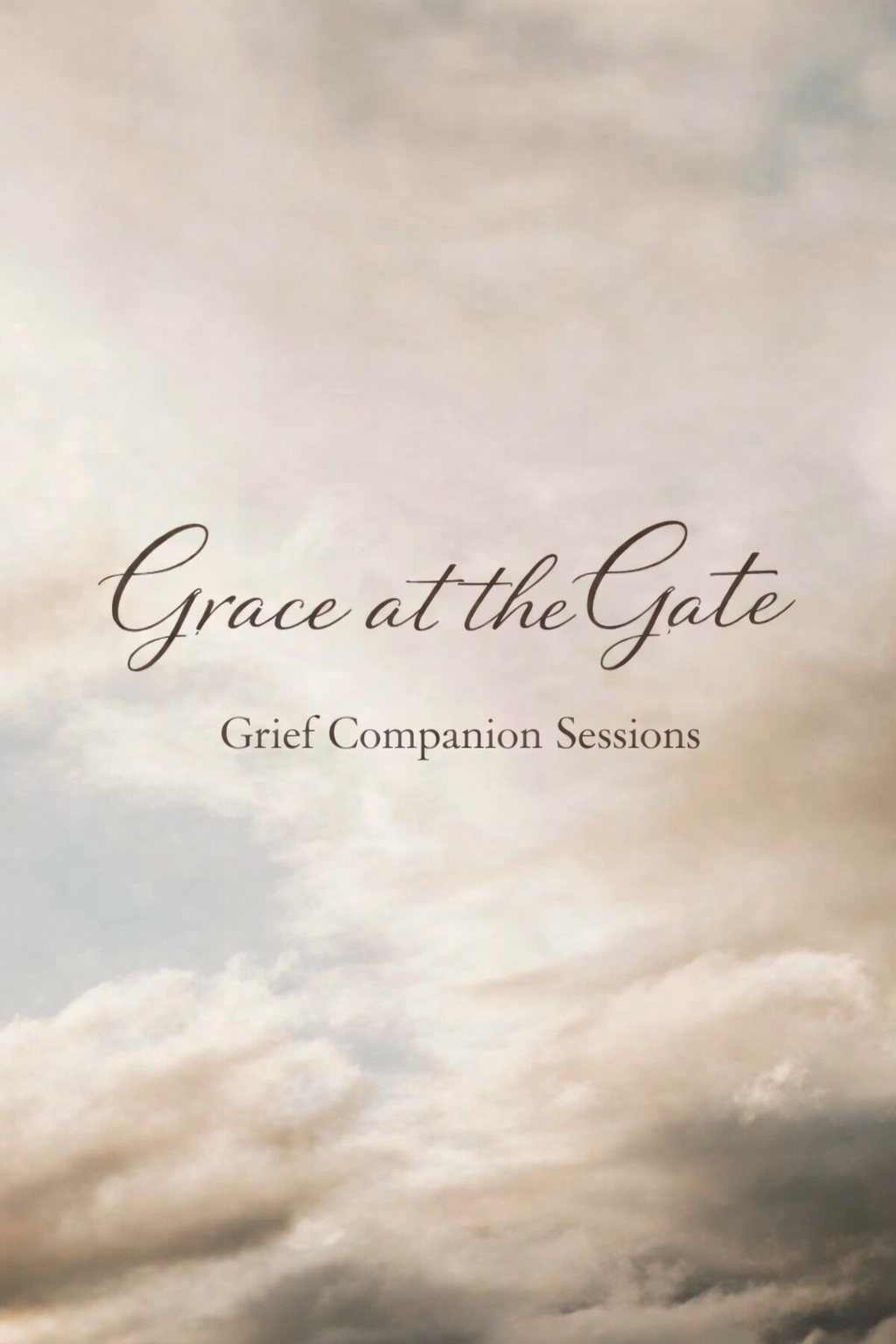 Image 1 of 1
Image 1 of 1


Grief Companion Sessions
Grace At The Gate offers grief companion services designed to support families through loss with compassion, practical guidance, and spiritual sensitivity. Services are tailored to individual needs, faith traditions, and family dynamics.
What we offer
Initial intake and assessment
Confidential conversation to understand your family’s needs, cultural and religious background, loss circumstances, and immediate concerns.
Creation of a personalized support plan with proposed services, timelines, and goals.
One-on-one grief companionship
Trained companions provide regular visits (in-person or virtual) to listen, validate feelings, and offer coping strategies.
Support for children and teens using age-appropriate language and activities to express grief.
Assistance with processing complicated emotions, anniversaries, and triggers.
Family support sessions
Facilitated family conversations to improve communication about the loss, share memories, and coordinate caregiving or memorial planning.
Conflict-sensitive approaches to address differing grief styles and cultural or religious expectations.
Spiritual care and ritual support
Spiritual companionship respectful of your family’s faith tradition or secular preference.
Guidance in creating meaningful rituals, memorial services, or home observances that reflect your beliefs and values.
Prayer, scripture readings, or reflective practices upon request; alternatives offered for non-religious families.
Practical guidance and resource navigation
Assistance with planning memorials, funerals, or celebrations of life—helping outline options, scripts, and logistics.
Information about community resources: counseling referrals, support groups, hospice bereavement programs, legal and financial resources related to loss.
Help organizing keepsakes, memory projects, and legacy activities (memory books, recordings, ritual objects).
Bereavement education and coping tools
Workshops or brief sessions on grief stages, common reactions, self-care, and supporting children through grief.
Tools for daily coping: grounding exercises, journaling prompts, breathing practices, and routine-building suggestions.
Ongoing follow-up and milestone support
Scheduled check-ins around key dates (anniversaries, birthdays, holidays) to prevent isolation during difficult times.
Short-term and longer-term companionship plans; flexibility to extend or modify support as needs change.
Service delivery and accessibility
Flexible delivery: in-home visits, community locations, phone, or secure video sessions.
Culturally and religiously sensitive staff trained to work with diverse traditions and families.
Confidential, nonjudgmental approach with optional involvement of clergy, therapists, or other professionals as requested.
Transparent fees and sliding-scale options available; assistance identifying low-cost or community-funded resources where possible.
How to get started
Contact Grace At The Gate for a brief intake to discuss needs and schedule an initial visit.
We will outline recommended next steps, available companions, and a proposed schedule tailored to your family.
Grace At The Gate aims to walk alongside families during grief with steady presence, practical help, and spiritual respect—helping you honor loved ones and find steadiness as you move forward
(Hourly Rate $100)
Grace At The Gate offers grief companion services designed to support families through loss with compassion, practical guidance, and spiritual sensitivity. Services are tailored to individual needs, faith traditions, and family dynamics.
What we offer
Initial intake and assessment
Confidential conversation to understand your family’s needs, cultural and religious background, loss circumstances, and immediate concerns.
Creation of a personalized support plan with proposed services, timelines, and goals.
One-on-one grief companionship
Trained companions provide regular visits (in-person or virtual) to listen, validate feelings, and offer coping strategies.
Support for children and teens using age-appropriate language and activities to express grief.
Assistance with processing complicated emotions, anniversaries, and triggers.
Family support sessions
Facilitated family conversations to improve communication about the loss, share memories, and coordinate caregiving or memorial planning.
Conflict-sensitive approaches to address differing grief styles and cultural or religious expectations.
Spiritual care and ritual support
Spiritual companionship respectful of your family’s faith tradition or secular preference.
Guidance in creating meaningful rituals, memorial services, or home observances that reflect your beliefs and values.
Prayer, scripture readings, or reflective practices upon request; alternatives offered for non-religious families.
Practical guidance and resource navigation
Assistance with planning memorials, funerals, or celebrations of life—helping outline options, scripts, and logistics.
Information about community resources: counseling referrals, support groups, hospice bereavement programs, legal and financial resources related to loss.
Help organizing keepsakes, memory projects, and legacy activities (memory books, recordings, ritual objects).
Bereavement education and coping tools
Workshops or brief sessions on grief stages, common reactions, self-care, and supporting children through grief.
Tools for daily coping: grounding exercises, journaling prompts, breathing practices, and routine-building suggestions.
Ongoing follow-up and milestone support
Scheduled check-ins around key dates (anniversaries, birthdays, holidays) to prevent isolation during difficult times.
Short-term and longer-term companionship plans; flexibility to extend or modify support as needs change.
Service delivery and accessibility
Flexible delivery: in-home visits, community locations, phone, or secure video sessions.
Culturally and religiously sensitive staff trained to work with diverse traditions and families.
Confidential, nonjudgmental approach with optional involvement of clergy, therapists, or other professionals as requested.
Transparent fees and sliding-scale options available; assistance identifying low-cost or community-funded resources where possible.
How to get started
Contact Grace At The Gate for a brief intake to discuss needs and schedule an initial visit.
We will outline recommended next steps, available companions, and a proposed schedule tailored to your family.
Grace At The Gate aims to walk alongside families during grief with steady presence, practical help, and spiritual respect—helping you honor loved ones and find steadiness as you move forward
(Hourly Rate $100)